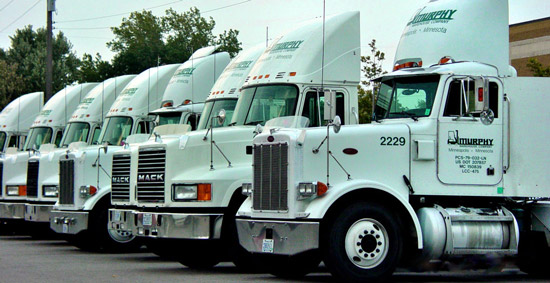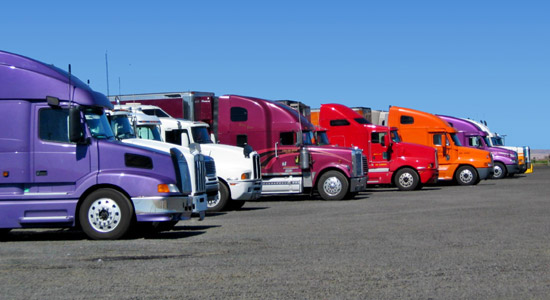Moving freight is what logistics is all about, and over the road is the best way to get product where it needs to go. There are a lot of different options when transportation becomes a big need within a company. Some companies thrive in one area of product transportation, similar to what UPS and FedEx have done with small parcel shipments direct to consumers. Others do it all and can complete transportation of bulk product from overseas into warehouses and all the way down to small parcel shipments to consumers. Some 3PLs handle everything themselves and some transportation companies don’t even own any of their own trucks; they instead find carriers that have a fleet to fit their client’s needs.
Asset based vs Non-Asset based
These terms simply mean, you own assets or you don’t own assets.
Asset based 3PLs own the tools and equipment such as trucks, trailers, warehouses, and software to service their clients. Asset based logistics providers generally will handle more than just transportation; (such as warehousing and fulfillment) they find efficiency in being able to handle any project that a client will need within their logistics operation. It is common for most asset based 3PL providers to have a large presence in certain areas of the country. They own a lot of equipment and tend to keep it close to home.

Non asset (sometimes called Committed Capacity solutions) based providers generally do not own any of the logistics equipment that services their clients. These companies are effective due to their relationships with asset based providers and the negotiation skills that they have to get the best rates. Using a non-asset based 3PL provider lets clients put the negotiation and sourcing into someone else’s hand when it comes to their supply chain. This is especially effective when multiple providers will be needed to handle the job.

There are many different ways to move freight over the road; here are some of the most common:
Full Truckload shipping is extremely common due to the efficiency that it brings. Loading a full trailer and shipping it to large partners is convenient, efficient and works out well for the client, the shipper and the receiver.
Less than a Truckload or LTL shipments are when there is not enough product to fill an entire trailer, but there are more than a couple of pallets. Generally there are anywhere from 1-7 pallets in an LTL shipment. Trailers can be filled with goods from multiple clients and a delivery route takes to multiple vendors is common.
Parcel shipments are extremely popular with e-commerce businesses. They small amounts of product right to the consumers doorsteps. They are used to get that final mile shipment into the right hands quickly and effectively.
Nation Wide shipments are common for non-asset based 3PLs due to the multiple providers that it takes to get product to the many markets.
No matter what choices are made when using a 3PL for transportation options, companies can find extreme increases in efficiency, risk mitigation, and cost savings. Be sure to check out our previous blog post on the benefits of outsourcing your logistics operation to a 3PL.
Making sure to choose the right 3PL for your company can also be extremely important in the long run as you start to build trust and a rapport with your providers.
You can easily learn more about Murphy’s asset based and non-asset based transportation options in our services section.
